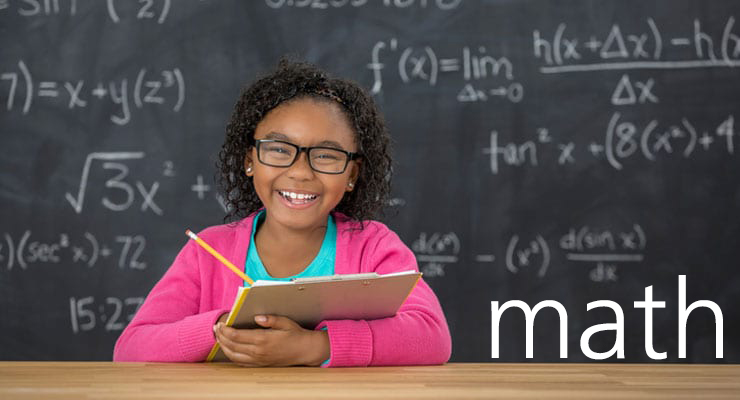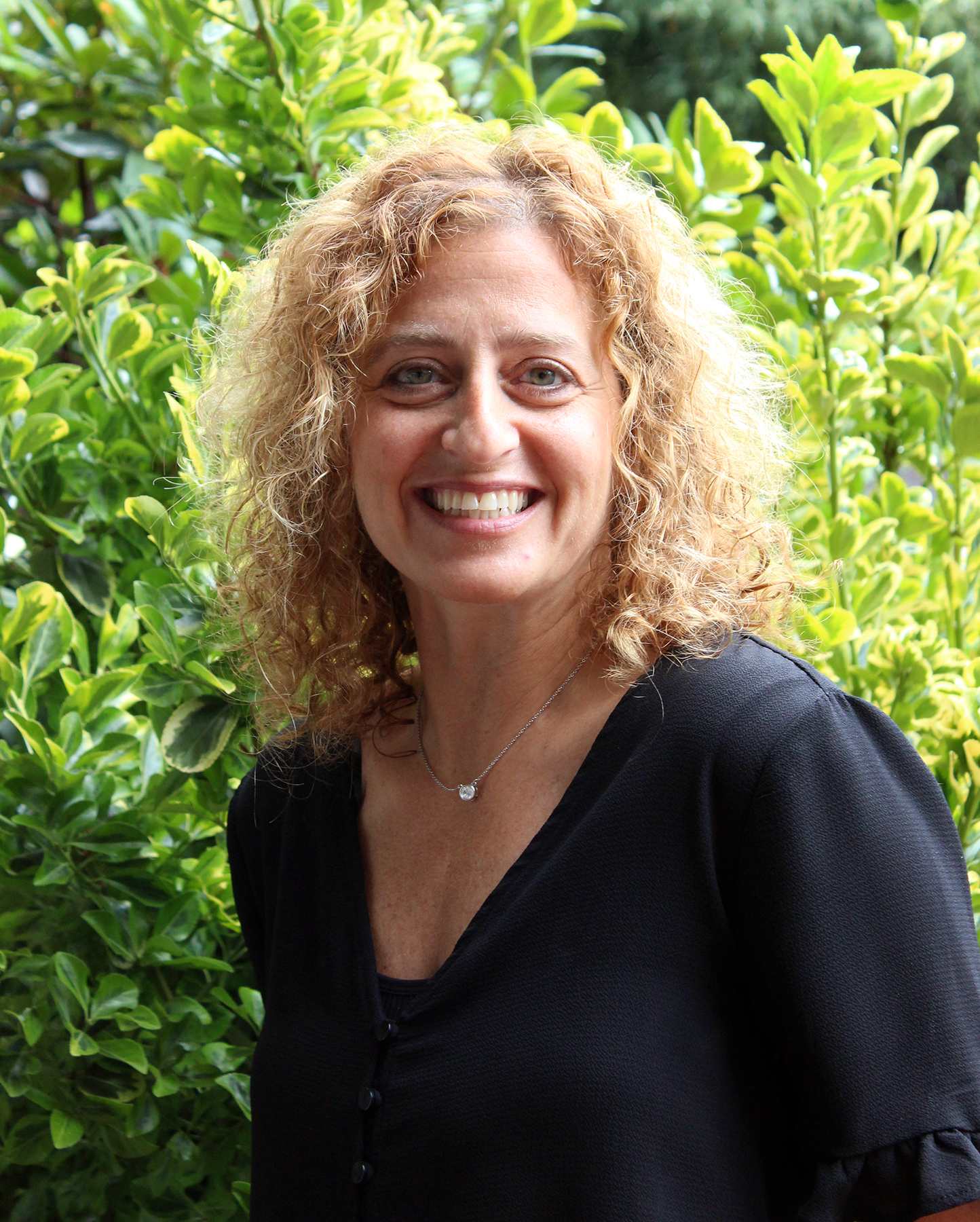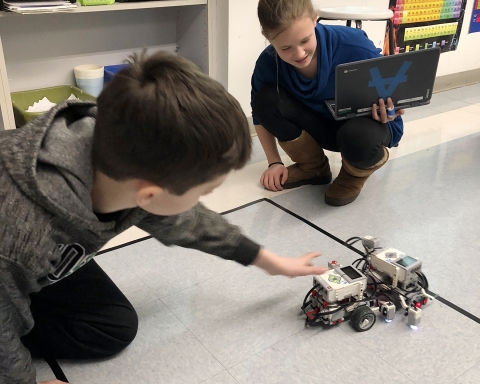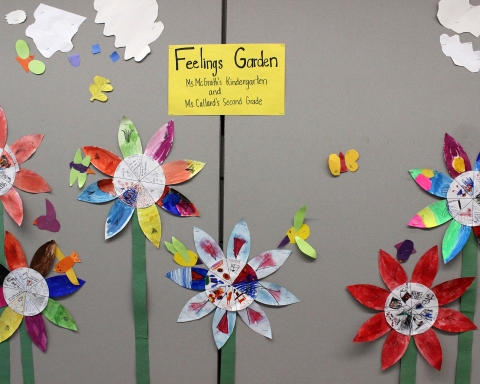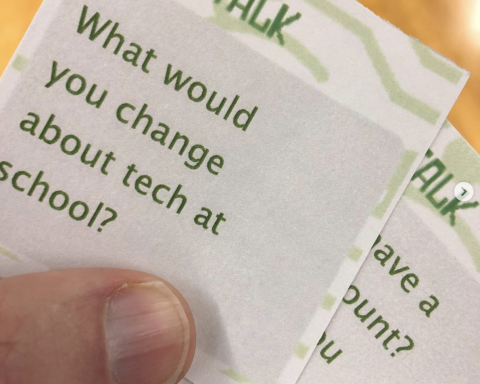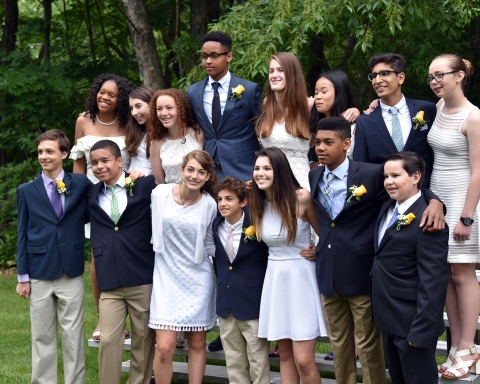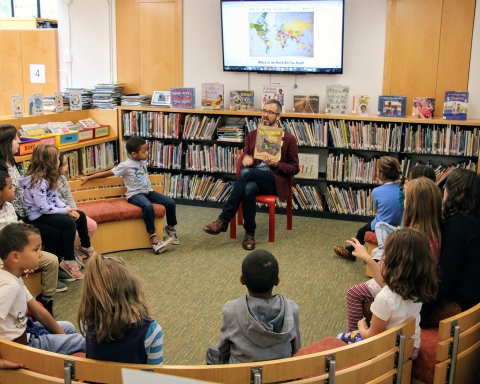The capacity of an organization to undergo a program review and renewal process represents its willingness to reflect, learn, and grow. The challenge in this work is to combine what we have always done well with what we come to understand through our own experiences, best practices in the field, and student needs.
This year, two committees have begun the exciting work of program review and renewal, one focusing on writing and the other on math. We launched our inquiry with a realistic, yet aspirational overarching essential question: “What differentiates and defines our writing and math programs as exceptional models of teaching and learning in a student-centered school?”
In collaborating toward a response to this question, we have made a commitment to look both internally at our current curricular and instructional strengths and weaknesses, while also, importantly, looking externally at the wide variety of new opportunities and the potential impact they may have on student achievement. As we enter this process, we recognize that there will be changes and that change and transition can be a difficult adjustment. Keeping this in mind, we will analyze proactively the barriers that arise to any change recommendations, remaining ever-focused on continuous improvement of the student experience.
A program review provides a systematic way of looking at how we plan, deliver, and evaluate our program, with an eye toward continuous improvement. It should also enable us to reveal our current distinctive features. To help us analyze and determine outcomes for students, our reviews will rely on data collected from a variety of resources, including an examination of innovations at other schools. These collaborative reviews at Park are an important part of ongoing professional development for faculty, as they create common agreement and understanding of program goals, intended outcomes, and effective pedagogy.
WRITING PROGRAM REVIEW
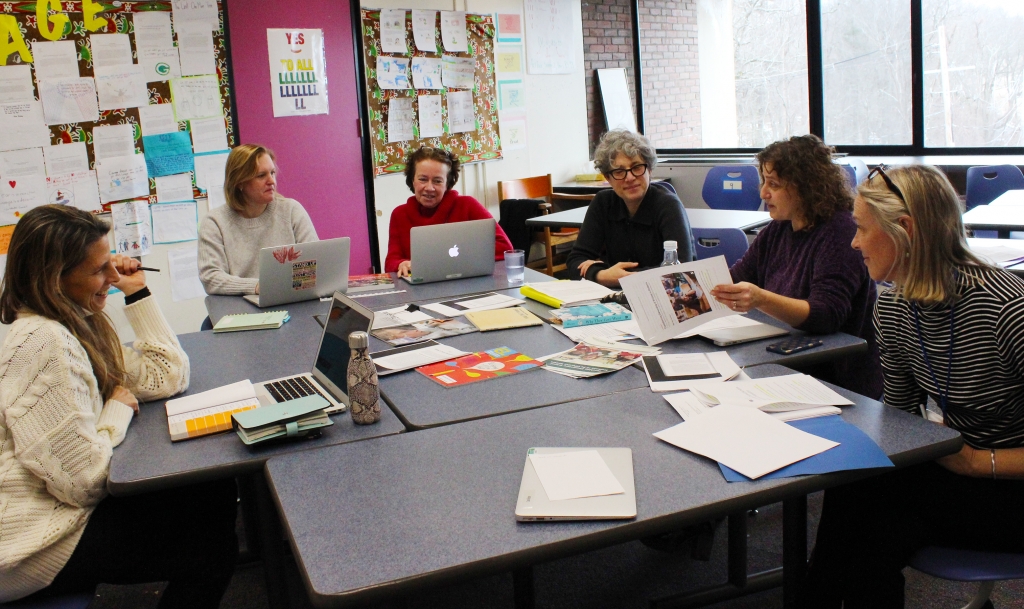
The process for the Writing Review began this fall, when Susan Bogue Myslik, Liz Neilson, and I began gathering resources, learning together, and drafting a teaching and learning philosophy, all in an effort to prepare for the work of a larger committee of faculty. We were influenced by national writing standards, the 2018 report from The Institute of Education Sciences, current thinking on student-centered writing practices, and books such as Writing Based Teaching; Essential Practices and Enduring Questions, from the Journal of Curriculum and Supervision. This February we launched a larger Writing Committee, representing voices from across divisions and departments. We are tasked with investigating how a writing program and its instructional methods can be designed to be student-centered, as well as what represents excellence in writing at each grade level of a PreK-VIII program.
Between now and June 2019, our committee will read, question, watch writing in action, discuss, think, and recommend. “I’m excited to be doing this work with such a great group of diverse thinkers from across the school,” Tory Lane, Library Department Head shared. “Time to look thoughtfully and deeply at Park’s writing curriculum is both exciting and encouraging.”
Carol Buzby, Upper Division Science Teacher agreed, adding, “We’ll be looking at the many ways we use writing in science to communicate. While there are obvious traditional forms, such as documenting observations, asking questions, collecting data, and using evidence to construct an argument, I’m intrigued by incorporating some newer, non traditional forms, such as writing scripts to accompany video, writing email requests, creating poems, or writing code for programming.”
The committee will continue its work through the summer and into the next school year, when it will investigate how Park’s writing program demonstrates a 21st Century education, differentiated practice, and equity and inclusivity in its methods of delivery. The time we spend this year in the review will result in a comprehensive vision statement about the teaching and learning of writing at The Park School, which we will analyze as a faculty to determine areas of preservation and areas for improvement in our program.
MATH PROGRAM REVIEW
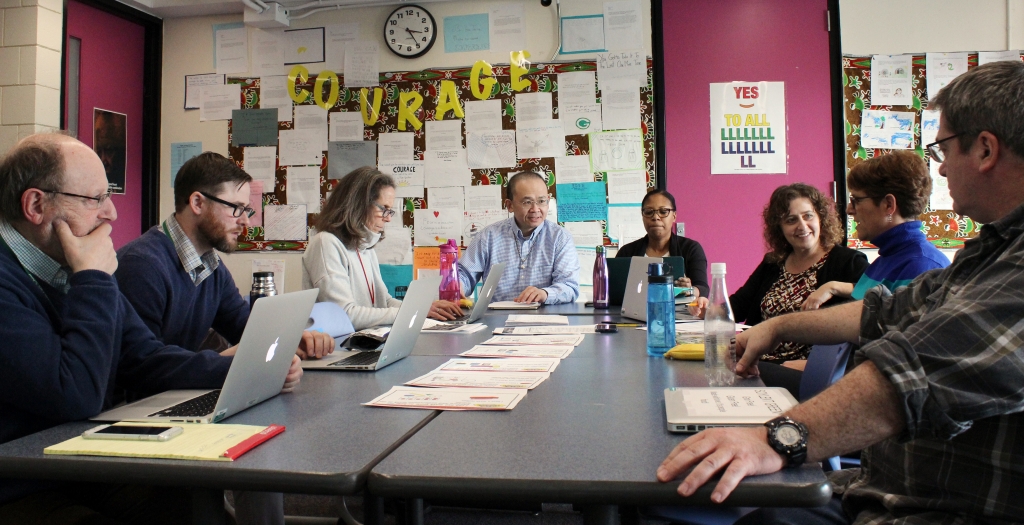
A small Math Leadership Team, comprised of Janet Cowan, Kung-Yi Chang, Fred Gross, Laurie Turner and I began preparing in the fall as well. While focusing on the same guiding questions between now and June 2020, the core for this math review is a comprehensive analysis of the eight mathematical practices from the National Council of Teaching Mathematics.
- Establish Mathematics Goals to Focus Learning
- Implement Tasks that Promote Reasoning & Problem-Solving
- Use & Connect Mathematical Representations
- Facilitate Meaningful Mathematical Discourse
- Pose Purposeful Question
- Build Procedural Fluency from Conceptual Understanding
- Support Productive Struggle in Learning Mathematics
- Elicit & Use Evidence of Student Thinking
In January, the committee grew in size to begin an investigation of two of these eight practices. For each, we will build a deep understanding of its meaning, determine the essential components of a learning experience, and engage with Park faculty to analyze curricular and instructional strengths, as well as areas for growth. This first half-year of review will result in both recognitions and recommendations regarding student-centered learning in math practices 3 and 4, from the list above. As a community, we will look toward implementation of this year’s research-based recommendations, even as we continue to investigate the remaining six practices.
It is inspiring to engage in this work over the next several months and into the 2019-20 school year. This review and renewal process will ultimately provide program recommendations in response to our future-facing essential question, “What differentiates and defines our writing/math program as an exceptional model of teaching and learning in a student-centered school.“

